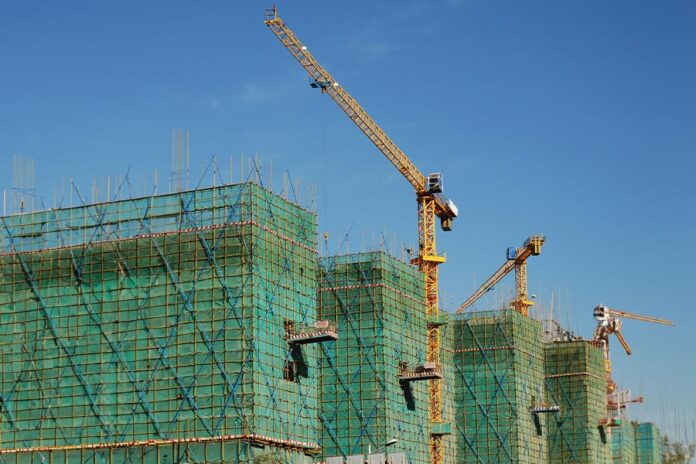To cool down the overheating real property market, relevant ministries of the State Council in late September introduced a further package of policies aimed at stepping up regulatory control over the use and development of residential land, taxation and credit. The new package comes six months after the State Council issued the Resolutely Halting the Overly Rapid Rise of Urban Property Prices in Certain Cities Notice (Guo Fa [2010] No. 10).
Use and development of land
On 27 September the Ministry of Land and Resources and the Ministry of Housing and Urban-Rural Development issued the Further Strengthening Regulatory Control over the Use and Development of Real Property Land Notice (Guo Tu Zi Fa [2010] No. 151), setting out the following major initiatives to regulate the use and development of land for residential purposes.
Low-income housing
- Priority is to be given to ensuring the supply of land for low-income housing; for land supplied for various types of low-cost housing, no change in the nature or use of the land and no increase in the development standards and dwelling size are allowed.
- A channel is to be set up to accelerate the administrative examination and approval of low-income housing projects, and relevant permits are to be issued within prescribed time limits.
Grants of land for development purposes
- Land must be granted in parcels, and planning and development requirements as well as land use standards must be specified; the rules governing the area of a single parcel of land granted for commercial housing must be strictly enforced; and the bundled grant of more than two parcels of land or the grant of land upon which there are structures to be demolished is prohibited.
- The location of a plot of land that is proposed to be granted, the nature of use and other planning requirements as well as the dwelling area and commencement and completion dates and other development requirements for low-income housing must be incorporated into a grant contract as the basis for the grant of the land. If a property developer applies to have planning and development requirements revised but fails to commence works on schedule, the land use rights will be recovered, and the land will be granted again by means of bidding, auction or listing.
- If a bidder is found to have committed any one of four offences, including leaving a piece of land idle for more than a year for its own reasons, developing and using the land contrary to the requirements prescribed in a grant contract, the bidder and its controlling shareholders will be banned from land bidding before the case is closed and investigation and rectification are completed.
- The construction of various types of housing development projects must commence within one year from the date of the delivery of land as agreed in a letter of decision on allocation and in a grant contract. These projects must be completed within three years from the date of commencement of works.
Supervisory and regulatory initiatives
- Upon the completion and acceptance of property development projects, the competent housing and urban-rural development departments should, in conjunction with the competent land resources departments, inspect the details regarding the requirements and commitments agreed by the developers in the execution of land use contracts for development projects.
- Rigorous investigation will be conducted into the accumulation of land sites, land speculation, retention of idle land, alterations to plot ratios without approval and illegal activities in the development and sale of commercial housing.
Deed tax and personal income tax
On 29 September the Ministry of Finance, the State Administration of Taxation and the Ministry of Housing and Urban-Rural Development published the Revision of Preferential Policies Concerning Deed Tax and Personal Income Tax in Real Property Transactions (Cai Shui [2010] No. 94).
- The standards for the applicability of the deed tax incentive policy have been revised. According to the former policy, an individual who purchased ordinary housing was subject to half of the deed tax: an individual who purchases ordinary housing with an area of 90 square metres or below was subject to a deed tax at the reduced rate of 1%. Cai Shui [2010] No. 94 provides that only individuals who purchase ordinary housing for their families (home buyers, spouses and children) can be entitled to the incentive policy.
- Cai Shui [2010] No. 94 provides that any taxpayers who purchase houses again within a year after selling their houses will no longer be entitled to personal income tax relief.
Credit policy
Also on 29 September the People’s Bank of China and the China Banking Regulatory Commission issued the Improvement of Differential Housing Credit Policy Notice (Yin Fa [2010] No. 275).
Individual housing loans tightened
- The document requires all commercial banks to suspend housing loans to buyers for a third or more set of housing. These banks are also told to suspend housing loans to non-local residents who are not able to provide proof of over one year’s payment of local taxes or social insurance contributions.
- For loans advanced for a first purchase of commercial housing, the required first down payment has been raised to 30% or more. For families who borrow to buy a second set of housing, the down payment must be no less than 50% at a lending interest rate of no less than 1.1 times the benchmark interest rate.
- Consumer loans are not allowed to be used as housing loans.
Corporate lending to property developers
- All commercial banks must stop the grant of loans for new development projects to property developers which have records of illegal activities such as retention of idle land, alterations to the purposes and nature of land, delay in the commencement and completion dates or reluctant sales of housing projects.
- Support will be given to property developers that need loan funding which participate in low-income housing projects and undertake commercial housing projects involving flats of a small and medium size to be sold at low and medium prices.






















